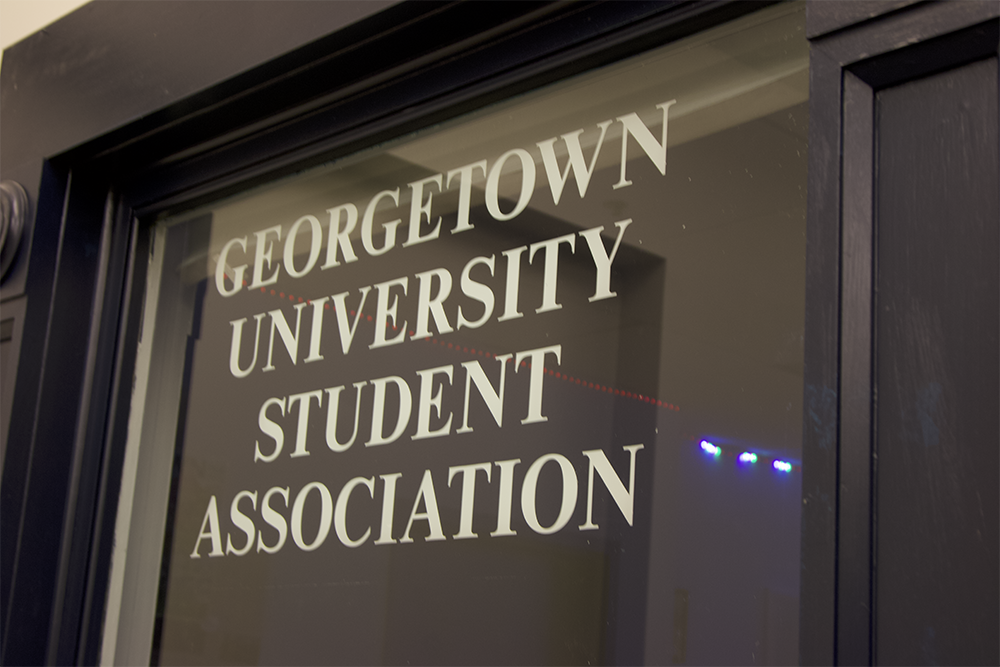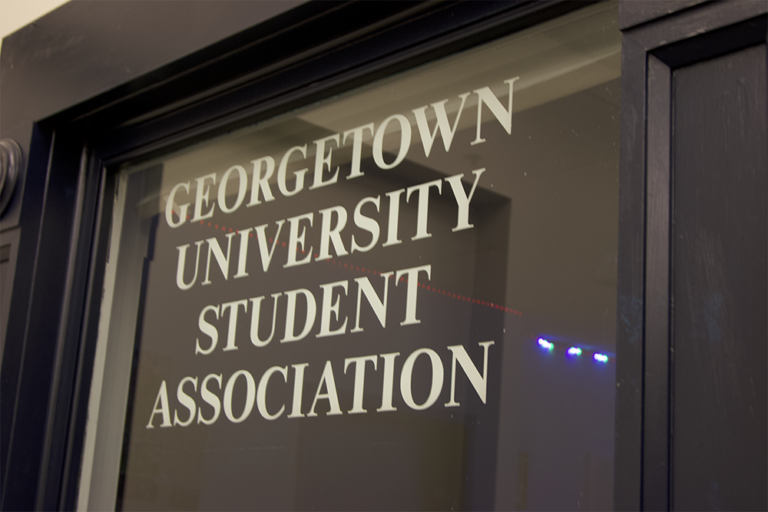The Georgetown University Student Association Senate passed a resolution urging Georgetown University to increase the number of employment opportunities available to students with Federal Work-Study awards during the upcoming fall semester.
The senate resolution aims to help low-income and first-generation students receiving financial aid through the Federal Work-Study Program find jobs despite the reduction in employment opportunities caused by the COVID-19 pandemic. Common Georgetown work-study employers, such as the Student Guard Office and Residence Hall Offices, have substantially reduced hiring for the summer sessions, according to the resolution.

Work-study positions are critical for students on financial aid, according to GUSA Senator Rowlie John Flores (COL ’22).
“These Federal Work-Study positions are not only a source of income but also a source of relevant work experience for a lot of low-income people, especially those who can’t really afford to have an unpaid internship outside of campus,” Flores said during the meeting.
The legislation asks the university to expand the number of remote job offerings to students and ensure a wide range of shifts and hours is available for students located in different time zones. Additional digital and remote employment opportunities would help students who rely on the Federal Work-Study Program, according to GUSA Senator Joseph Yacovone (COL ’22), who proposed the resolution.
“Most jobs that are currently listed or have been listed in past years have been in person, but given that this is a very unique situation, I think the university should either consider expanding this so that more people who do need this to go and pay for college as part of their financial aid package can have the money to go do that without having to worry about whether it’s getting sick or putting yourself at risk from this virus,” Yacovone said during the meeting.
Approximately 40% of Georgetown students receive some form of financial aid, and 10% to 12% of undergraduates are first-generation college students, according to the resolution.
The resolution also urges administrators to secure additional hazard pay for students with on-campus work-study jobs during the fall semester to compensate them for working through the pandemic.
The senate also evaluated its internal diversity. Varsha Menon (SFS ’21), vice chair of the GUSA Election Commission, presented new data about demographics of the summer’s GUSA Senate. Data about senators’ race, ethnicity, gender, sexuality, religion and ability were collected from anonymous surveys sent to the legislative body.
According to submitted responses from 21 of the 22 senators, 45.5% of senators are white, 27.3% are Asian and 22.7% identify as “other,” according to the data. In terms of ethnic identity, 31.8% of senators identified as Hispanic or Latino. GUSA demographic data published in January revealed 31% of GUSA senators identified their ethnicity as white, 31% as Latino, 24% as Asian and 14% as Black.
The most recent data collected show 63.6% of senators identify as cisgender males, while 31.8% identify as cisgender females, and 4.5% did not respond to the question. The majority of senators — 54.5% — identify as straight, while 22.7% identify as gay, 9.1% as bisexual and 4.5% as pansexual; 9.1% of respondents declined to answer.
The majority of respondents declined to provide information about ability status. When asked to identify their disability by type, 86.4% of senators declined to respond, and the 13.6% of senators who did respond said they experience mental illness.
In terms of socioeconomic status, 9.1% of senators receive a full scholarship, including room and board fees, while 40.9% receive a full-tuition scholarship.
According to seven respondents to a question about additional identities, the body also includes two senators who are domestic non-citizens, four first-generation students, two international students and two Community Scholars Program members.
GUSA had difficulties gauging how well the senate represents the student body because the university provides little data about diversity on campus, according to Menon.
“The school does a really bad job of reporting student demographics, to be quite honest,” Menon said at the meeting. “They really didn’t provide any information on how many students are on aid and what kind of aid students are receiving. They also did not give any sort of breakdown on sexuality. Again, their gender breakdown was pretty horrible; they didn’t have anything in terms of gender breakdown on cisgender, transgender, nonbinary folks.”





















